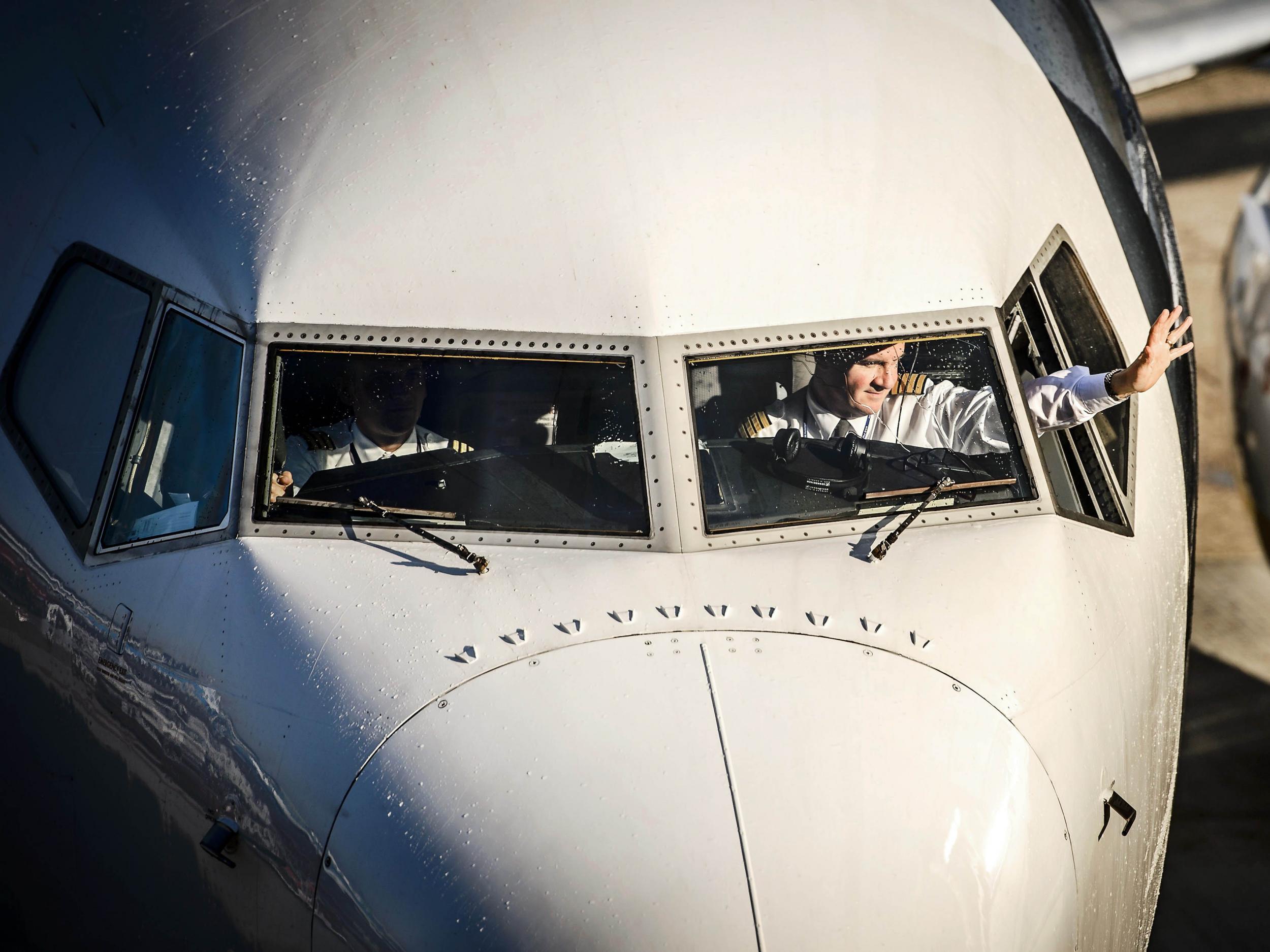Ryanair: why recognising unions makes sense, even to Michael O'Leary
Plane Talk: At breakfast time on Friday, an industrial relations revolution occurred at Europe's biggest budget airline

Your support helps us to tell the story
From reproductive rights to climate change to Big Tech, The Independent is on the ground when the story is developing. Whether it's investigating the financials of Elon Musk's pro-Trump PAC or producing our latest documentary, 'The A Word', which shines a light on the American women fighting for reproductive rights, we know how important it is to parse out the facts from the messaging.
At such a critical moment in US history, we need reporters on the ground. Your donation allows us to keep sending journalists to speak to both sides of the story.
The Independent is trusted by Americans across the entire political spectrum. And unlike many other quality news outlets, we choose not to lock Americans out of our reporting and analysis with paywalls. We believe quality journalism should be available to everyone, paid for by those who can afford it.
Your support makes all the difference.Ever since it was founded in 1985, Ryanair has had some unusual employment practices. Its first aircraft, a 15-seat Brazilian-made propeller plane, was so small that only cabin crew under 5ft 3in were considered eligible.
Now that it has become Europe’s biggest low-cost airline, Ryanair engages pilots in non-standard contracts, according to the British Airline Pilots’ Association.
BALPA’s general secretary, Brian Strutton, says: “Many pilots who fly for Ryanair are not in fact employed by them but are agency workers, supplied through several different third-, or even fourth-party companies.”
The airline says: “Like any group of workers, Ryanair’s very well paid pilots are free to join unions.” But until now, the airline has declined to engage with them, preferring to deal with an “Employee Representative Committee” at each of its bases.
At breakfast time on Friday, an industrial relations revolution occurred. The airline’s controversial chief executive, perhaps wearing his favourite Christmas jumper, announced: “We will now deal with our pilots through recognised national union structures.”
Michael “Santa” O’Leary was responding to strike calls by flight crew in various parts of Europe – notably a stoppage planned for Wednesday by some pilots based in Dublin and elsewhere.
“Christmas flights are very important to our customers and we wish to remove any worry or concern that they may be disrupted by pilot industrial action next week,” he said.
“If the best way to achieve this is to talk to our pilots through a recognised union process, then we are prepared to do so.”
This being Ryanair, terms and conditions apply. Only unions in Britain, Ireland, Germany, Italy, Spain and Portugal are being considered at present. And the airline is demanding that they each establish committees of Ryanair pilots, saying: “Ryanair will not engage with pilots who fly for competitor airlines.”
So what lies behind a U-turn as dramatic as those performed by some British Airways jets flying to Heathrow last Sunday (when passengers from Basel and Berlin flew halfway to London then returned whence they had come because BA had run out of room at its main base)?
I sense that Peter Bellew, Ryanair’s newly returned chief operations officer, has had a quiet word. He was always well regarded by flight crew, and has great respect for them.
You will recall that, in September, Ryanair abruptly cancelled 20,000 flights after some botched pilot rostering. With pilots aware of their increased industrial muscle, there have been growing demands for the airline to recognise trade unions – culminating in strike threats for 20 December, the last Wednesday before Christmas.
Ryanair’s sudden reversal is partly informed by the short-term impact on profitability, losing valuable revenue at what should be one of the most lucrative times of the year. The fare for the one-hour hop from Edinburgh to Dublin next Wednesday morning, which could have been hit by the strike, is £205.
Next, there is serious concern about the reputational effect of more cancellations. After the bonfire of the schedules in September, anything that unsettles prospective passengers is damaging in an industry that depends so much on confidence.
But more important still, as Peter Bellew knows, is the need to build trust with the people who keep the planes in the air. No reminder is ever needed that flying is vulnerable to all manner of disruption, but the cancellations to, from and within Italy because of strikes there on Friday afternoon provided one anyway.
Not a moment too soon, Ryanair seems to have accepted it is no longer the cheeky challenger. If any industry needs more peace and goodwill, it is aviation.
Join our commenting forum
Join thought-provoking conversations, follow other Independent readers and see their replies
0Comments